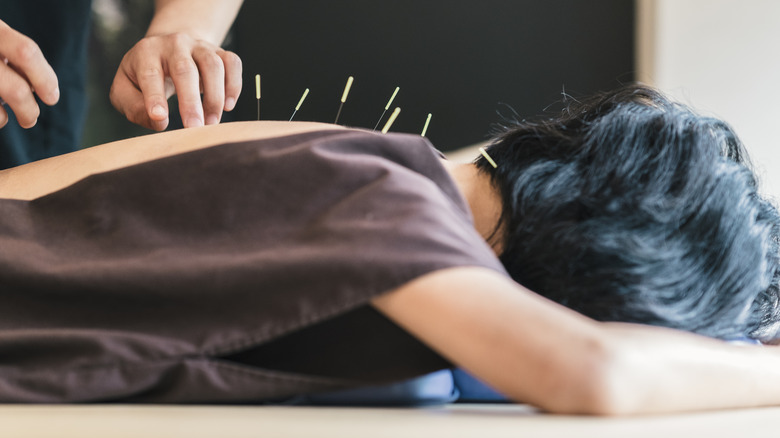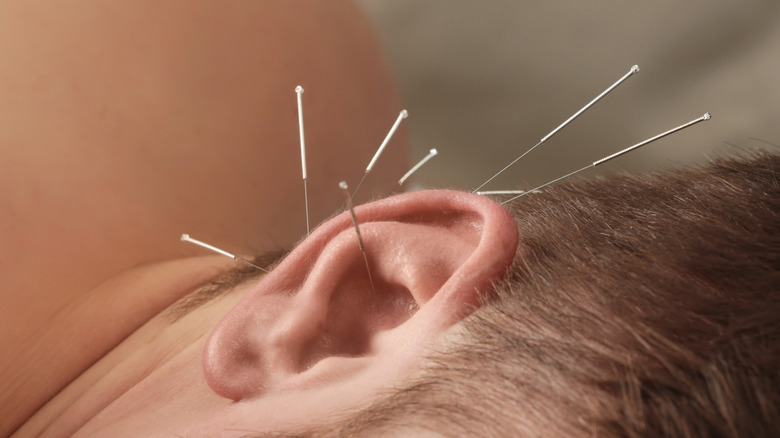The Truth About Acupuncture
WebMD credits an appendicitis attack for the western world's modern-day introduction to the Chinese practice of acupuncture. In 1971, New York Times reporter James Reston said he was admitted to The Anti-Imperialist Hospital after suffering abdominal pains, and while the surgery went off without a hitch, he suffered pains during his second night in recovery (via The New York Times). He was then treated by a traditional Chinese medicine doctor who inserted needles into Reston's elbow and knees and placed a smoking herb near the reporter's abdomen. Reston said the problem never returned.
If the thought of being punctured by a bunch of fine needles leaves you more than a bit queasy, acupuncture may not be for you. While not exactly a natural remedy, it's considered alternative medicine, and it involves inserting super-thin needles into specific points of a person's body to address complaints from chronic headaches and back pains to blood pressure problems.
What these needles do depends on who you talk to. Chinese doctors say the needles are applied to meridians which can be found all over the human body (there are 350 points), in order to regulate qi (pronounced "chee"), or life force. Western researchers, on the other hand, say these meridians are located in places where nerves, muscles, and connective tissues are susceptible to stimulation (via Medical News Today).
"There's nothing magical about acupuncture," founder and director of the UCLA Center for East-West Medicine Ka-Kit Hui tells WebMD. "Many of these [alternative] techniques, including acupuncture, they work by activating the body's own self-healing [mechanism.]"
Western researchers cannot prove acupuncture works
James Reston may have had a positive experience with acupuncture in 1971, but even today the jury is still out on whether the practice works. Ask five different doctors so share their thoughts about acupuncture, and you're likely to get five different opinions. At least that's what Scientific American did when they wanted to find out how physicians felt about the alternative medical treatment now being used by millions around the world to treat everything from pain to depression.
Hugo MacPherson, acupuncturist and senior research fellow at the UK's University of York, tells Scientific American that getting an accurate read on whether acupuncture works, particularly where depression is concerned, is a challenge. "Trials on acupuncture involve a lot of variability, especially in relation to depression, which is unlikely to be a single disease entity," he said. "Depression is commonly experienced with other symptoms. For example, the population of patients with depression we recruited in one study included around 50 percent in chronic pain. This variability creates what we could call 'noise,' making it more difficult to see whether an intervention works."
University College London's David Colquhoun outright dismisses acupuncture altogether. He says, "Acupuncture does not work, which means all discussions of how it does work are irrelevant."
But if you are in pain, can get over your fear of needles, and want to try alternative treatments, there is no harm in giving acupuncture a shot. Just make sure the practitioner you have in mind comes with a recommendation and is properly qualified to treat you.

